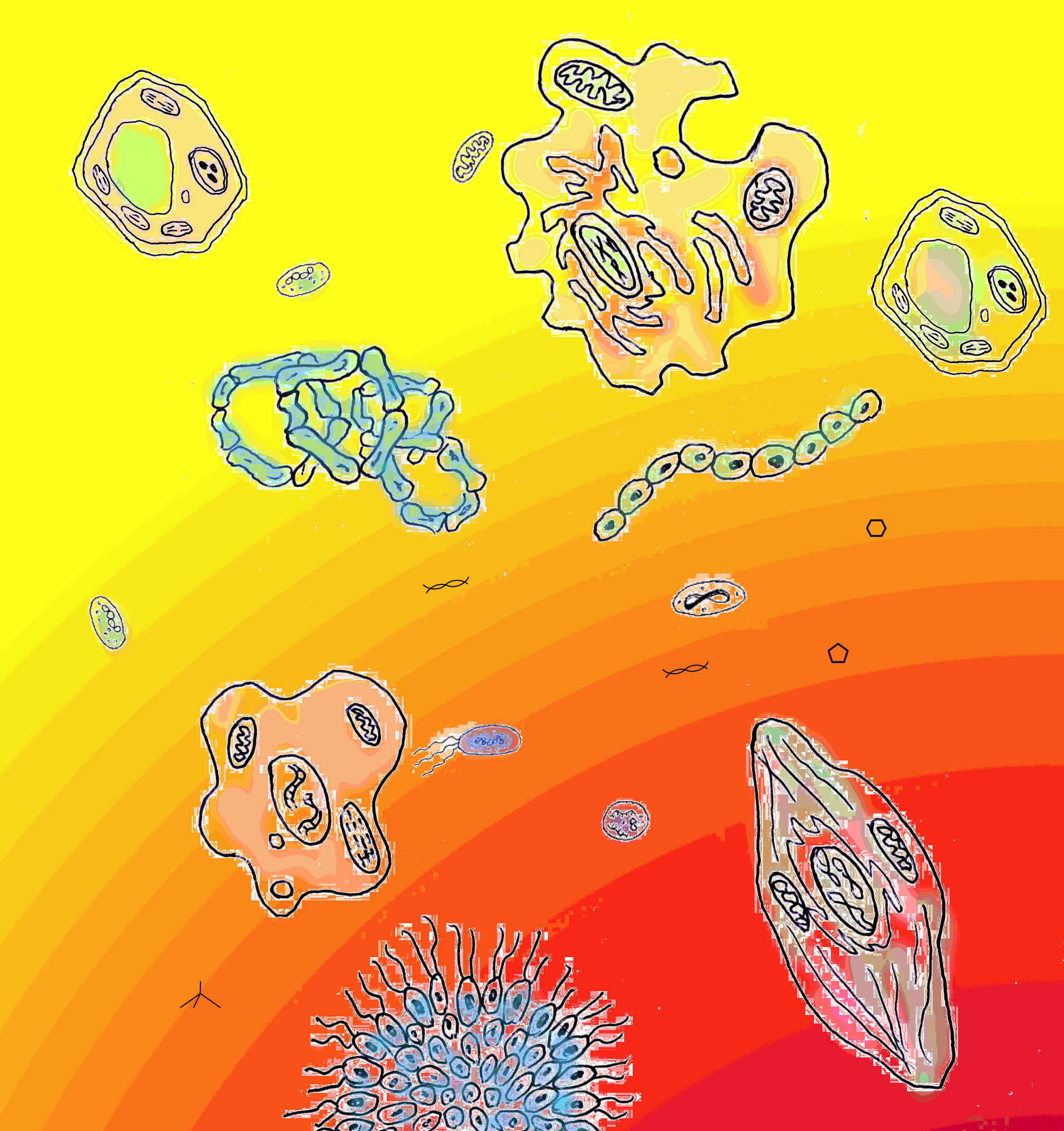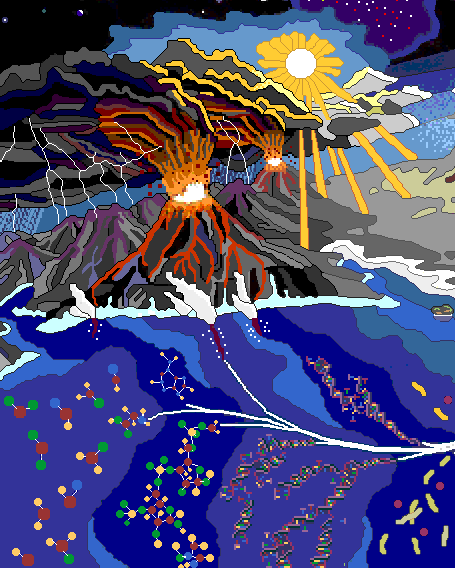Conceptual Themes of the IFB Project
Click on the picture to access details
| Information
Theory:
The mathemtical theory of information applied to biological systems at
every level from genetics up to the Gaia hypothesis of global
ecological stability. |
|

|
Functional
Information in Molecular Biology:
Many applications of functional information concept can be found in
molecular biology, from information storage in nucleic acids,
translation and control in genetic networks and transcription machinery
and the molecular-scale structuring of cellular components, itself
storing and processing information. (Image credit: The crystal
structure of an RNA molecule bound to a protein. Proteins are essential
for many cellular functions in living organisms, and the assumed
complexity behind their evolution has long puzzled scientists.
Image: Signalling molecule. John Nelson |
 |
A
deeper understanding of
Information:
From the philosophy of information and function, we derive a deeper
understanding of functional information and 'meaning' as it applies to
biological systems. Image (COBE Background Radiation, NASA) |

|
Thermodynamic
Interpretations:
Here we consider the thermodynamic interpretaton of information
dynamics and of course include considerations of entropy and its
multiple meanings. Image Credit: NASA (Star formation ) |
 |
Biocomplexity:
Here we consider the implications of complexity and its emergent
phenomenal for life and the way it functions. Image: 'early life 1' by John Nelson & Keith Farnsworth |
 |
Origins
of Life:
What light do these concepts and discoveries shed on the origin of
life? Image Credit: NASA |

|
Diversity:
We deal with life at all scales, from molecules to the global
ecosystem. A key feature of this is the diversity of living forms and
functions and the role they play in generating emergent functions at
each higher level of organisation. Image Credit Unknown: source |

|
Synthesis :
Putting it all together to form a new synthesis
for biology, based on an information interpretation of life. Image: 'early life 2' by John Nelson & Keith Farnsworth |
Hosted by Queen's
University
Belfast
